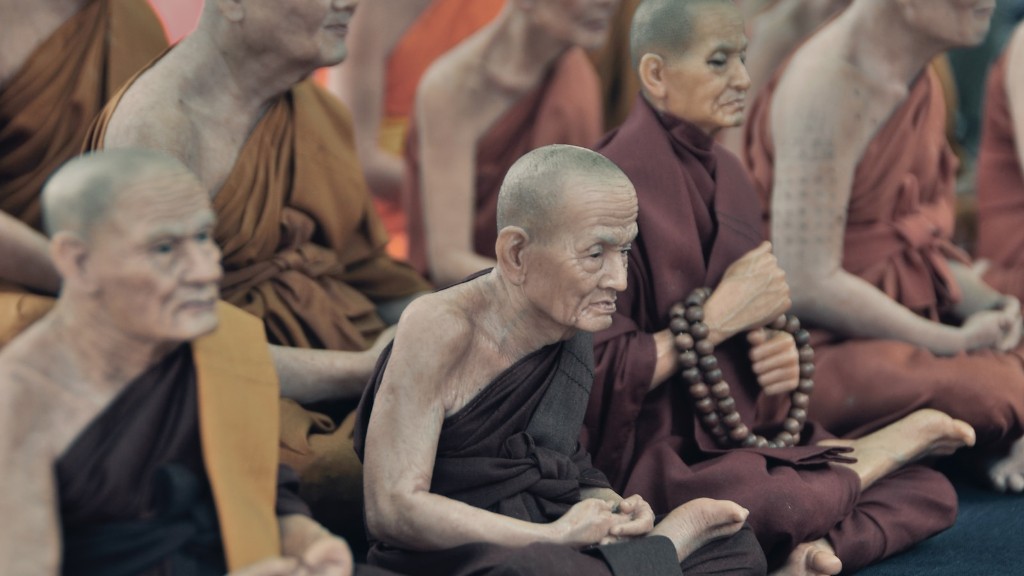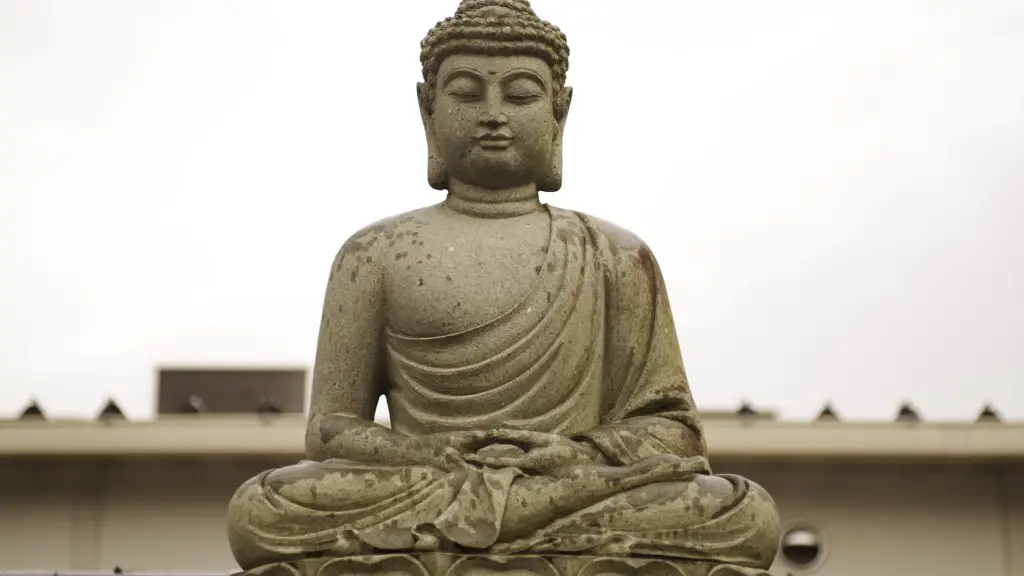Hinduism is an ancient set of traditions and beliefs that originated in the Indian subcontinent, which goes back centuries. As one of the oldest and most influential of all world religions, Hinduism has a long and rich history. At its core, Hinduism is characterized by a deep reverence for the divine, an awareness of the unity of all creation, a dedication to living ethically, and respect for the spiritual power of the forces that govern the universe. Of these beliefs and practices, one of the most important questions is: what is God like in Hinduism?
Hindus have a complex and wide-ranging view of God and spirituality. While Hinduism teaches that there are many individual and distinct gods, it also states that all of these gods are the same divine being, viewed through the lens of different interpretations. In Hinduism, God is often seen as a single, all-encompassing being, with multiple aspects that can be experienced by humans. In Hinduism, these aspects are referred to as “avatars,” which are physical or spiritual forms that are thought to embody a divine presence. Thus, for Hindus, God can take on many different forms, each one representing a different aspect of the divine.
Hindu gods are often seen as nature-based, and many Hindu gods are associated with animals, plants, or forces of nature such as water and the sun. This view of God is reflected in the mythology of the Hindu people, where it is said that the gods come down to earth and take on physical forms in order to interact with the world. In some cases, these gods are thought to bring peace and prosperity to those who honor them. In Hinduism, these gods are seen as powerful and benevolent forces, guiding and protecting the people.
Hinduism also teaches that God is the source of all that exists and that everything is a manifestation of the divine. Thus, Hindus view God as being both within and beyond the physical world. According to Hinduism, God is the force behind all creation, manifesting itself in different forms, such as the gods and goddesses that are worshipped. Additionally, Hindus believe that God is ultimately transcendent and exists beyond all of creation.
Hinduism views God as the lord of the universe, the absolute truth and the ultimate source of knowledge and wisdom. Hindus believe that it is only through devotion to God that one can experience true joy and peace. Hindus also believe that it is through meditation and spiritual practice that one can connect with God and experience the divine in its fullest form.
The concept of God in Hinduism is a complex and deeply nuanced one. Hindus seek to understand the divine through a variety of different approaches, from the mystical to the philosophical. The ultimate goal of these approaches is to experience the divine and find the truth that lies beyond the physical world. As Hindus seek to find the answers to life’s mysteries, they look to the divine aspect of God to provide guidance and clarity.
Related Concepts
The concept of God in Hinduism is related to several other concepts. One of the most important is dharma, or the spiritual and moral code of conduct that sets out how one should live one’s life. Additionally, karma is another important concept related to the idea of God in Hinduism. Karma is the law of cause and effect, where the consequences of one’s actions are experienced in the present and in the afterlife. Lastly, reincarnation is also related to the concept of God in Hinduism. Reincarnation is the belief that the soul reincarnates into different bodies after death.
God in Practice
The Hindu practice of worshipping and honoring the divine involves many different rituals and traditions. Hindus may honor and worship the divine in many different ways, from simply meditating or offering prayers to performing elaborate rituals and participating in festivals. In Hinduism, the ultimate goal of worship is to experience the divine, to understand the mystery of creation, and to be guided by the laws of karma.
Additionally, Hindus often seek to serve God by living an ethical life in accordance with dharma. By honoring the divine in this way, they hope to find peace and joy in life, and to be guided by the wisdom of the divine in their day-to-day lives.
Conclusion
Hinduism is an ancient religion that has been shaped and developed over centuries. To those who practice Hinduism, the concept of God is a fundamental aspect of their faith. In Hinduism, God is seen as a single, all-encompassing divine being, with many different aspects that can be experienced by humans. Hindus honor and worship God in a variety of ways, from simply meditating and offering prayers to complex rituals and festivals. Ultimately, the goal for Hindus is to experience the divine and to be guided by its wisdom.
God-Realization and Enlightenment
The ultimate goal for many Hindus is to realize the ultimate truth of God and to experience enlightenment. For Hindus, enlightenment is the experience of an inner knowing, an awareness of the unity of all creation, and a selfless installation of the divine. Through meditation and other spiritual practices, Hindus hope to achieve this level of understanding and gain access to the divine realm.
God-realization is often seen as the highest spiritual attainment, and as such it is often aimed for by those who practice Hinduism. Through prayer, worship, and meditation, Hindus seek to move beyond the physical world and attain a higher understanding of the divine. This experience of inner knowing is seen as offering ultimate peace and joy, and as a way to heal broken relationships and reconnect with one’s true self.
God and the Afterlife
Hindus believe that death is not the end, but rather the beginning of a new journey. Hindus believe that the soul is eternal and exists beyond the physical body. At the time of death, the soul is believed to move on to the afterlife. Hindus believe that the afterlife is dictated by one’s karma and can be experienced as either a physical or spiritual realm, or a combination of both.
In the afterlife, Hindus believe that one’s soul can be reunited with God. This reunion is seen as a state of ultimate bliss, a release from the cycle of death and rebirth, and is believed to be a glimpse into the infinite nature of God.
God in Hinduism and the Modern World
The concept of God in Hinduism has evolved over time as the Hindu faith has interacted with other cultures and religions. In the modern world, many Hindus seek to find a connection between their faith and the beliefs of other faiths. Additionally, many Hindus in the world today look for ways to bridge the spiritual and the scientific, and to find ways to bring the two together to experience the mysteries of the divine.
Hinduism is a complex and deeply nuanced faith, and no single answer can capture the fullness of its teachings on the divine. Nevertheless, it is clear that Hinduism envisions God as an infinite, all-encompassing being that is present in all creation, and as a source of ultimate guidance and peace.



